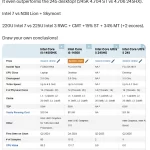One of the fundamental questions for many aspiring traders is how forex trading works in an economy as dynamic as Nigeria’s. Swing trading, which involves holding positions for a few days to a few weeks, can offer Nigerian traders a more flexible approach than day trading. While global macroeconomic forces certainly affect currency pairs and other assets, local factors, such as changes in Nigeria’s monetary policies and oil price fluctuations, can also shape trading opportunities.
This article explores how to succeed at swing trading within Nigeria’s volatile market environment, providing both new and experienced traders with insights on strategies, risk management, and overall market awareness.
Understanding the Basics of Swing Trading
Swing trading is a strategy where traders seek to capture gains from short- to medium-term market movements. Instead of trying to profit from every single uptick throughout the day, swing traders typically look to identify a clear price trend and aim to enter at the start of an upswing or downswing. In Nigeria, where market conditions can shift rapidly due to internal economic decisions and global influences, swing trading allows for a balance between taking advantage of price fluctuations and reducing the stress of round-the-clock monitoring.
For instance, in the foreign exchange market, a trader might identify a potential upward swing for the USD/NGN pair if signs point to economic challenges within Nigeria that could weaken the Naira against the US dollar. Rather than attempting to capture minute-by-minute changes, the trader would hold this position over several days or weeks, depending on market momentum. With the right strategy, these kinds of swings can yield substantial returns.
Navigating Nigeria’s Volatile Market
Volatility in Nigeria can stem from multiple factors. The state of the oil sector, political climate, and central bank policies all contribute to changes in market sentiment. As the government or Central Bank of Nigeria (CBN) adjusts interest rates or manages foreign currency reserves, the Naira’s value can fluctuate significantly. This environment can be both an opportunity and a challenge for swing traders.
While increased volatility can generate stronger price movements to capture, it also raises the stakes. Accurate market analysis becomes crucial. For Nigerian traders, keeping abreast of updates from the CBN, monitoring economic indicators such as inflation rates, and staying informed about global oil prices are all essential. These factors often affect domestic investor confidence, consumer spending power, and international trade flows, shaping the context in which swing traders operate.
Developing a Swing Trading Plan
A swing trading plan typically includes clear entry and exit strategies, risk management guidelines, and a set of tools or indicators. In Nigeria, traders should also consider how local currency liquidity, transaction costs, and the choice of brokers can affect their outcomes. Some traders focus on chart patterns and technical indicators like moving averages or the Relative Strength Index (RSI) to spot potential turning points. Others might incorporate fundamental analysis, reviewing major economic events or corporate earnings (in the case of stocks), to validate or challenge the signals they see in price charts.
Having a plan is vital because emotional decisions can be costly in a volatile market. A well-defined methodology prevents impulsive moves driven by sudden market swings, ensuring that traders adhere to their strategy rather than react to temporary noise.
Leveraging the Right Tools
Swing traders in Nigeria have a variety of tools at their disposal. Mobile trading apps enable real-time tracking of positions, giving traders the flexibility to respond quickly if needed. Brokerage platforms with advanced charting software, customizable technical indicators, and news feeds that highlight local events are especially helpful. Some traders also rely on specialized swing trading scanners to filter potential trades based on price movement patterns.
It is important to choose a reputable broker with strong regulation and a reliable trading infrastructure. Delays or interruptions in order execution can be costly. With forex brokers, for example, you want to ensure that you have competitive spreads, reliable customer support, and access to various currency pairs that reflect your trading interests.
Risk Management and Position Sizing
Risk management is especially critical in a market where unpredictable events can cause swift price shifts. One prudent step is to define position sizes based on the amount of capital allocated for trading. Many professional traders recommend risking a small percentage of the total account, often 1% or 2%, on each trade. This approach helps protect capital if a trade goes against expectations.
Stop-loss orders offer another layer of safety. These orders automatically close a position once the price reaches a predetermined level, limiting potential losses. In Nigeria, where the Naira can move sharply due to policy announcements, political developments, or external shocks, setting a protective stop-loss can prevent unexpected drawdowns. Additionally, take-profit orders enable traders to lock in gains at a chosen level. By having both stop-loss and take-profit orders, swing traders can remove guesswork and maintain discipline.
Staying Updated on Local and Global News
Swing trading opportunities in Nigeria can arise from local news, such as new government initiatives, regulatory changes, or corporate developments on the Nigerian Stock Exchange (NGX). However, external events also play a significant role. For instance, a sudden change in global oil prices can influence the revenue stream of Nigeria, an oil-dependent economy. This might, in turn, affect foreign investor confidence, the value of the Naira, and even stock market sentiment.
Keeping a watchful eye on reliable local news outlets, international financial headlines, and data from agencies like the National Bureau of Statistics can help traders anticipate market swings. The more informed you are, the better you can time your entries and exits to capitalize on price moves.
Conclusion
Mastering swing trading in Nigeria’s volatile market involves a combination of sound strategy, disciplined risk management, and awareness of both local and global factors. By focusing on short- to medium-term price movements, traders can capture substantial gains without the constant pressure of intraday trading. Whether you are tracking currency pairs affected by Nigeria’s economic health or looking at local stocks riding on policy changes and global demand shifts, a solid plan remains your best defense against unpredictable market twists.
Ultimately, swing trading success comes down to maintaining discipline, continually refining your approach, and staying informed. With a well-structured strategy that accounts for Nigeria’s unique environment, traders can position themselves to thrive in both bullish and bearish market conditions. By understanding the mechanisms that drive price movements, employing protective measures, and maintaining a close watch on developments that impact the Naira, you can confidently navigate and master swing trading in Nigeria’s often unpredictable market.
Support PREMIUM TIMES’ journalism of integrity and credibility
At Premium Times, we firmly believe in the importance of high-quality journalism. Recognizing that not everyone can afford costly news subscriptions, we are dedicated to delivering meticulously researched, fact-checked news that remains freely accessible to all.
Whether you turn to Premium Times for daily updates, in-depth investigations into pressing national issues, or entertaining trending stories, we value your readership.
It’s essential to acknowledge that news production incurs expenses, and we take pride in never placing our stories behind a prohibitive paywall.
Would you consider supporting us with a modest contribution on a monthly basis to help maintain our commitment to free, accessible news?
Make Contribution
TEXT AD: Call Willie – +2348098788999
© Premium Times








